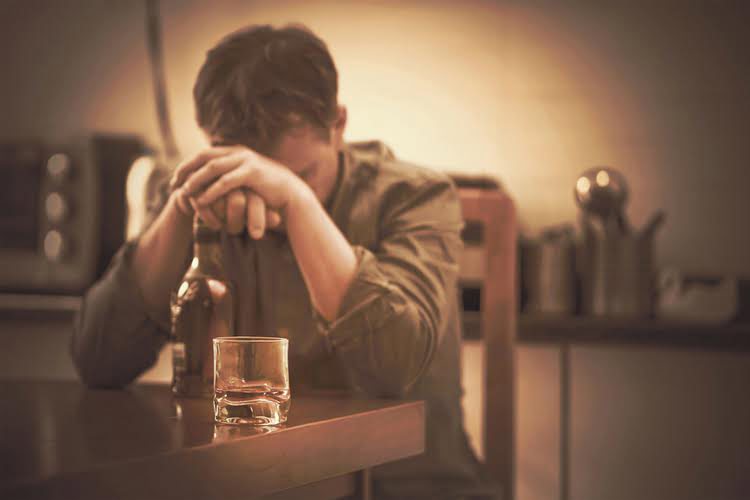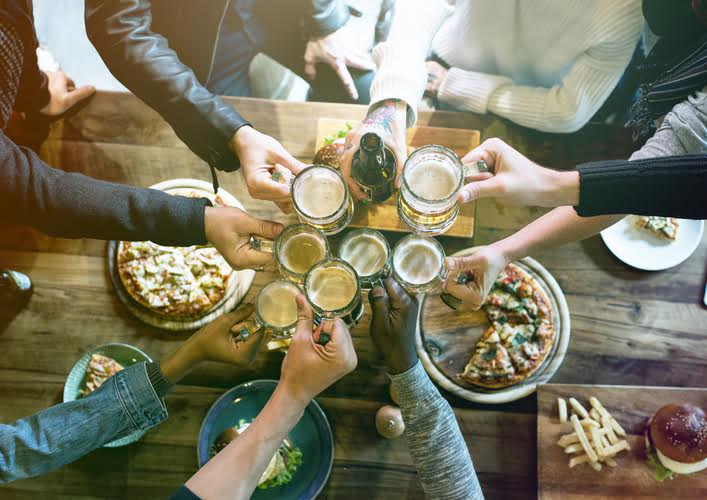Alcohols Effects On Blood Pressure
Content
We did not see any significant change in blood pressure or heart rate after that, but the evidence was limited. The CDC also states that to reduce alcohol-related health risks, adults of legal drinking age should limit their alcohol consumption to two drinks or less a day for men and one drink or less for women. It is okay to have drinks in moderation if you are a healthy individual. But if you’re younger than 50, particularly if you’re a woman, it’s not so clear. Studies have shown a rise in breast cancer risk in women under 50 from drinking alcohol. While most studies show this results from drinking more heavily (more than 1-2 drinks a day), Klatsky says some research indicates even light-moderate drinking could play a role in a younger woman’s risk of breast cancer. Another study, this time in the Journal of the American Heart Association, indicates that binge drinking increases blood pressure levels in men but not women.
It more than likely the quantity of alcohol and stress caused by the the UK political chaos that causes my high blood pressure. Thanks for the medical advice though.
— Andrew Bourne (@abebourne53) December 9, 2021
XM-W identified the final statistical analysis and revised the manuscript. All authors approved the final version to be submitted for consideration for publication. All Alcoholrehabhelp content is medically reviewed or fact checked to ensure as much factual accuracy as possible. One glass of wine per day typically won’t affect blood pressure significantly. Alcohol withdrawal can also cause high blood pressure, leading to a rapid rise before decreasing. Those who don’t drink alcohol as heavily typically see their blood pressure normalize quicker after stopping alcohol use. Your blood pressure is a measure of the strength of this pumping, combined with the resistance from the artery walls.
Alcohol And Blood Pressure
Currently, there is little data on the association between alcohol use and hypertension. Considering the high prevalence of both alcohol use and hypertension, as well as hypertension’s possible association with other cardiovascular risk factors, a link between the two is likely.

Worldwide, 32.5% of people were current drinkers in 2016, and the burden of disease caused by drinking increases with age, peaking in men aged 55–65 years . A meta-analysis has shown that decreasing alcohol consumption, which is known to be an effective intervention, reduces the burden of disease caused by hypertension .
Alcohol
Most evidence supports a positive association between sodium intake and blood pressure , and the literatures on excessive alcohol consumption’s harmful effects on blood pressure blood pressure and alcohol level are also mostly consistent . However, little is known about the interactive effect of excessive sodium intake and drinking on hypertension in older adults.

Look for the medically reviewed badge on our articles for the most up-to-date and accurate information. Learn how drinking too much alcohol can cause high blood pressure and may increase the risk of more serious medical conditions. In general, a normal resting heart rate for adults is between 60 and 100 beats per minute. With two or more drinks, the increase in heart rate was greater, and heart rates remained slightly elevated up to 24 hours later. The alcohol intake outcome measure, the Chronologic Drinking Record,19 was administered at the third screening visit and at 3, 6, 12, 18, and 24 months after randomization. It was an interviewer-assisted, retrospective diary of the participant’s drinking on an event-by-event basis for the week before the data collection visit.
Similar Articles
There are several possible explanations for the lack of significant treatment effect seen in PATHS. These possibilities are each considered in the following paragraphs. Repeated measures analyses also were performed to compare differences in BP between randomized groups using all BP determinations through the initial 6-month period as well as for the entire 24-month follow-up period. The BMDP5V software program was used for these repeated measures analyses.25 A simple regression model with no visit–treatment group interaction and an unstructured covariance matrix was used. The BP readings from follow-up visits that occurred while participants were taking antihypertensive medication were not used in these analyses; instead, values from the most recent prior visit were carried forward. The same imputation procedure was used for most missed follow-up visits.
If you are having trouble seeing or completing this challenge, this page may help. If you continue to experience issues, you can contact JSTOR support.
How Alcohol Affects High Blood Pressure
Alcohol ingestion in dogs caused sustained RAS activation with progressive increases in plasma levels of Angiotensin II, renin activity, left ventricular ACE enzyme activity, and left ventricular myocyte Ang II AT1 receptor expression. This mechanism is more likely implicated in alcohol-induced hypertension. Randomized controlled trials provide a high level of evidence for the efficacy of an intervention. However, as recently reviewed,11 only 10 randomized studies have been conducted to examine the effect of a reduction in alcohol intake on BP. These relatively few studies usually included few subjects, were also generally of short duration, and were not designed as effectiveness trials.

Interventionists were not involved in any postrandomization data collection. The maintenance phase lasted up to 18 months and consisted of a minimum of 6 visits at 1- to 3-month intervals. When moderate alcohol drinking leads to unhealthy forms of drinking, it is known as binge drinking and it increases your risk of hypertension. If consumed in little to moderate amounts, alcohol can be healthy for most individuals. However, drinking too much alcohol can create many problems including an increase in blood pressure. Having more than three drinks back-to-back can increase your blood pressure temporarily, but if you keep doing it frequently, you may develop a long-term condition called hypertension . Your age and other risk factors linked to heart and blood pressure health will ultimately aid your decision with your doctor about drinking.
Study Design And Participants
Our systems have detected unusual traffic activity from your network. Please complete this reCAPTCHA to demonstrate that it’s you making the requests and not a robot.
Mean difference from placebo with 95% confidence interval was the outcome measure, and a fixed-effect model was used to combine effect sizes across studies. Verywell Health uses only high-quality sources, including peer-reviewed studies, to support the facts within our articles.
Spaak, Jonas; et al. “Dose-related effects of red wine and alcohol on hemodynamics, sympathetic nerve activity, and arterial diameter.” American Journal of Physiology-Heart and Circulatory Physiology, February 1, 2008. Contact the Orlando Recovery Center to speak with a representative about how professional addiction treatment can address an alcohol use disorder. Too much alcohol can also contribute to high triglycerides Transitional living which cause fatty buildup in the artery walls, increasing your risk of a heart attack and stroke. Caffeine can make blood pressure rise temporarily, especially if you’re not used to it. But there’s no definitive evidence that a cup of coffee a day raises blood pressure over the long haul. Some research suggests heavy caffeine consumers get used to it, so their blood pressure doesn’t react as much anymore.
- In turn, arterial hypertension is the main attributable risk factor premature life lost years and disability.
- WebMD does not endorse any product, service or treatment referred to on this page.
- Alcohol increases blood levels of the hormone renin, which causes the blood vessels to constrict.
- Grayver said the type of alcohol that people drink could also make a difference.
Men are three times more frequent drinkers and intake about 80% more ethanol than women. Researchers didn’t find any significant difference in blood pressure and alcohol intake by gender or ethnic/racial background. They plan to further analyze the data for insights on how demographic factors might influence the relationship between alcohol consumption and high blood pressure. We are moderately certain that medium-dose alcohol decreased blood pressure and increased heart rate within six hours of consumption.
THE MOST likely explanation for the lack of significant effects on BP in PATHS is lack of a sufficient between-group difference in alcohol change. The PATHS was designed based on the expectation of a 2-drink per day difference between treatment groups at 6 months.11 However, only about two thirds of this difference (1.3 drinks per day) was achieved. Meaningful effects on BP may require larger than the 1.3-drink per day between-group difference in alcohol consumption. Inner Mongolia is a multi-ethnic region in the most northern part of China, with large internal variations in geography and climate. Wine is an essential beverage for social gatherings in Inner Mongolia, and higher alcohol consumption tends to increase energy intake because residents are accustomed to eating pickled food with high salt content when they drink.
Consuming more than 3 drinks in a single session can lead to a short-term increase in blood pressure. Odds ratio for high systemic blood pressure according to the pattern of alcohol consumption. Office workers who logged 49-plus hours on the job weekly were 70% more likely to have a hidden form of high blood pressure called masked hypertension, compared to people who work less than 35 hours … A 2018 study showed that no amount of alcohol is considered safe, because its risks lead to a loss of healthy life. A 2018 study, echoed by the World Health Organization , concluded that no amount of alcohol is safe for consumption, as alcohol leads to a loss of healthy life. High Blood Pressure Symptoms Most people with high blood pressure have no signs or symptoms, even if blood pressure readings reach dangerously high levels. In some patients, symptoms may include fatigue, headaches, dizziness, confusion, sweating, chest pain and vision problems.
Heavy physical activity and excess alcohol consumption in winter can increase risk of heart failure: Exper – TheHealthSite
Heavy physical activity and excess alcohol consumption in winter can increase risk of heart failure: Exper.
Posted: Sat, 04 Dec 2021 06:08:00 GMT [source]
